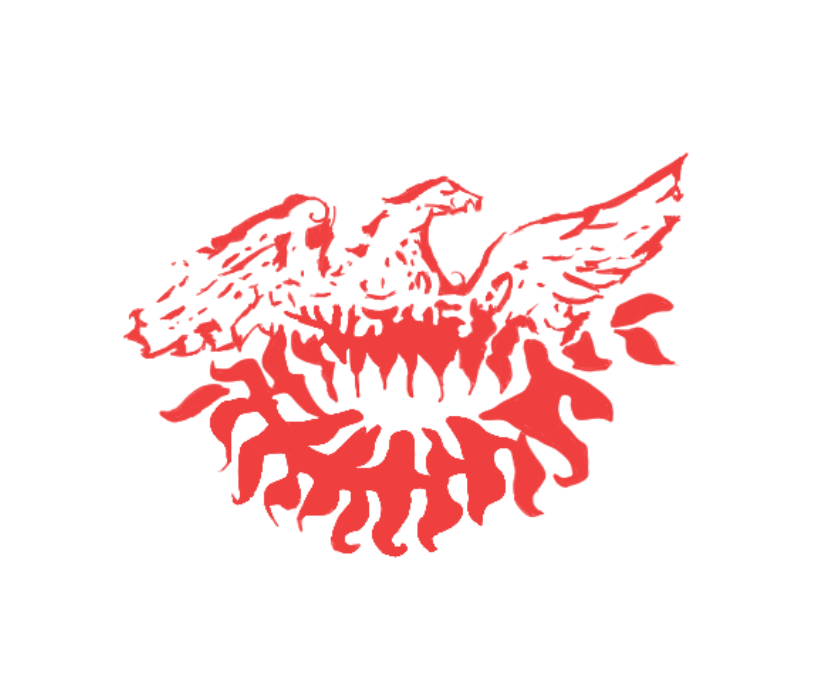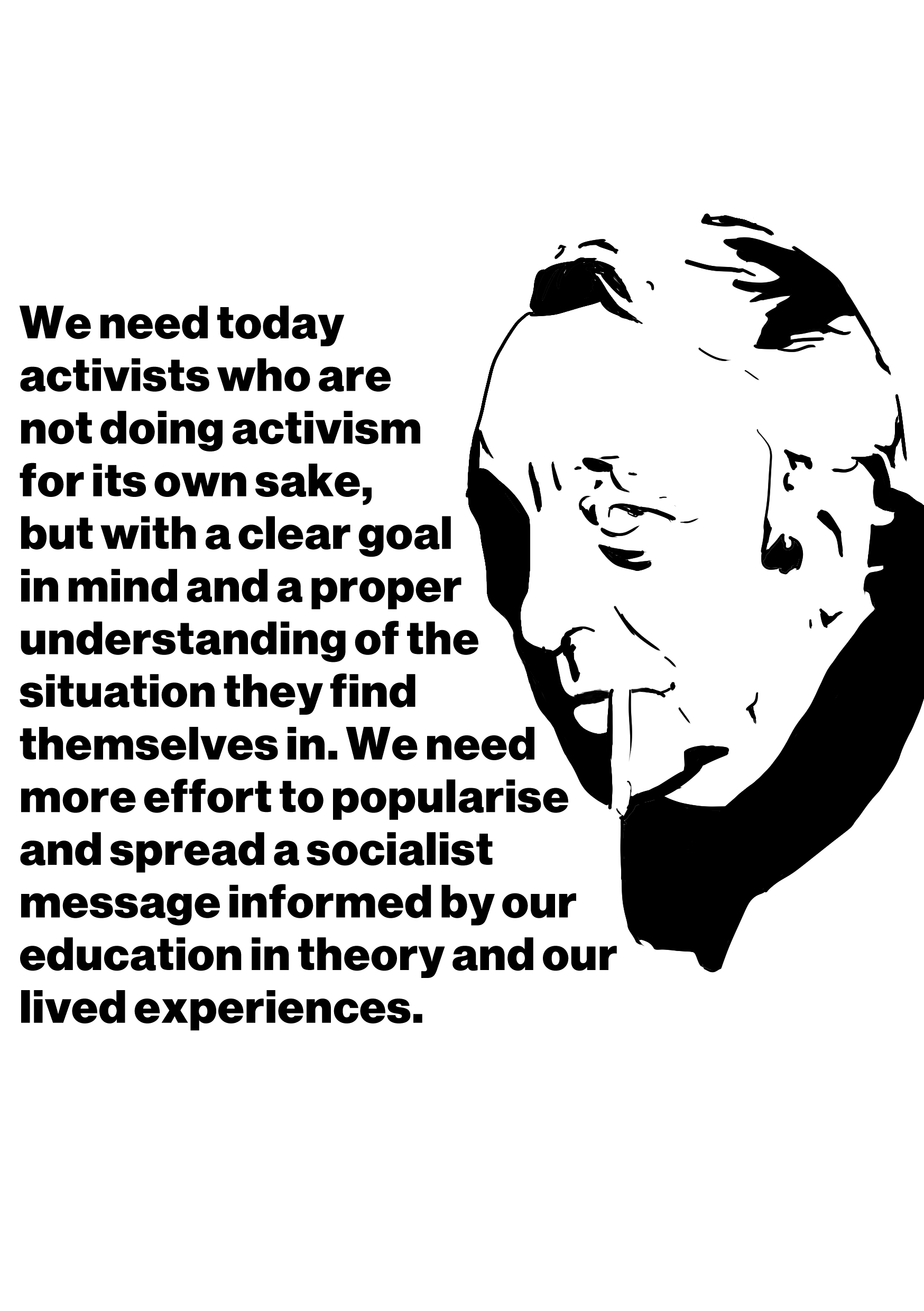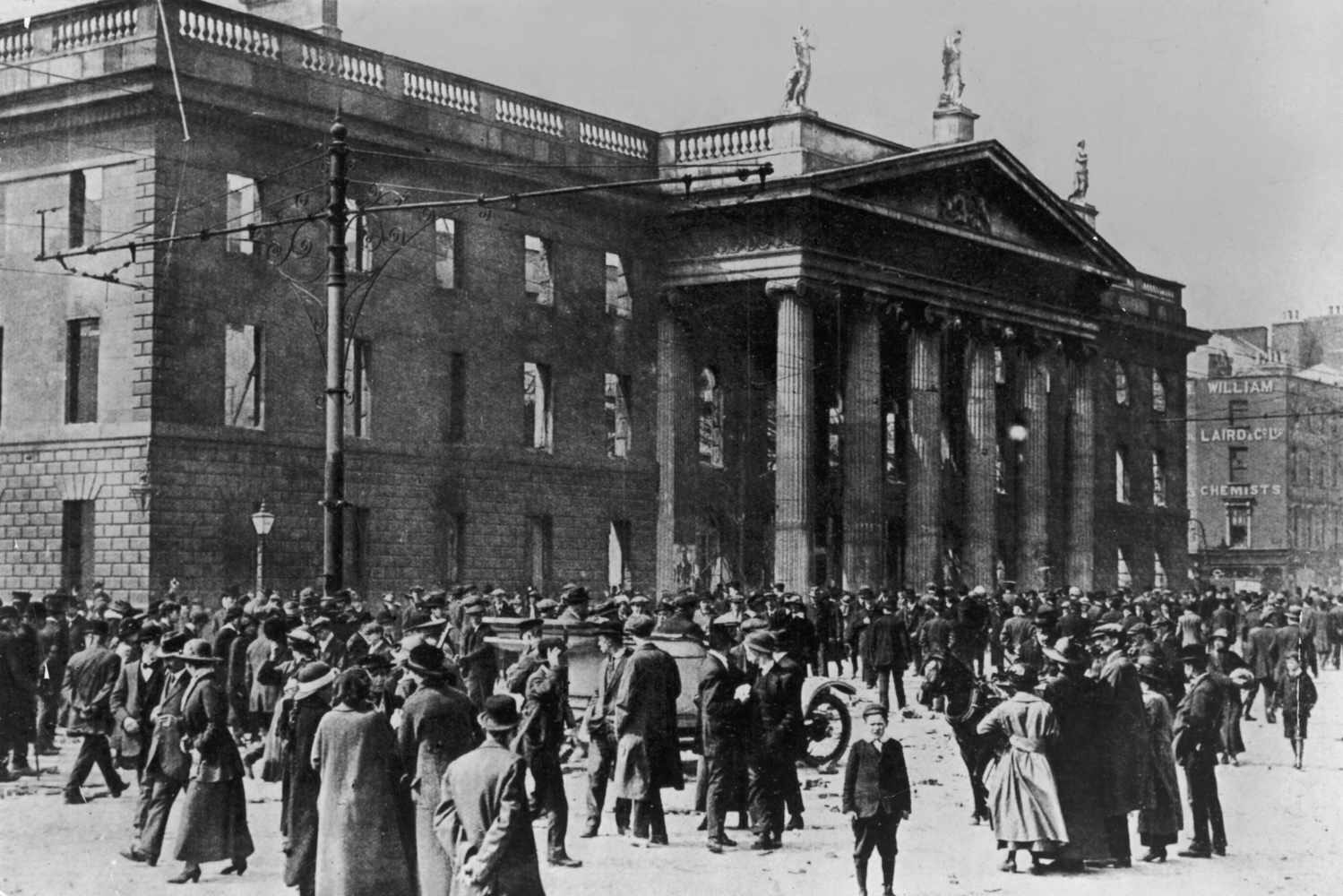By Jake Clancy
Wednesday 5 July 2023
Theory. The word conjures up, in the space of left-wing discourse, the image of an isolated bunch of intellectuals discussing arcane and abstract concepts. The term is used and abused to mean anything from the dogmatic principles of political pamphlets to tomes of economic and philosophical writing inaccessible to any but the most erudite among us. It is not unreasonable to ask any student of left-wing theory “but what use is it for us in the real world!?”. Too common is it a temptation for the young middle class socialist to spend more time engaging in abstract theoretical debates with reference to long-dead authors than it is to get their hands dirty through engagement in the real struggle of the working class today. Such middle class intellectuals must appear as if they are speaking down to the working class from their ivory tower, for whom alone the correct knowledge on what to do is reserved, if only workers would come to them to receive this knowledge. Despite this, we would like to argue that we cannot throw out theory, as Connolly said,”I want all the intellectual Socialists whom we can get but I have little use for the Socialist intellectual.”1 It is, in our view, necessary that we do not throw out theoretical work as activists, which we intend to show.
First it’s necessary to get a good idea of what we mean when we talk about theory. For most new socialists, it usually means a selection of works from a variety of figures: Marx, Lenin, Rosa Luxemburg, Trotsky or maybe something more eclectic and obscure than that. When young socialists are exposed to it, usually in the form of joining an organisation or learning about socialism on the internet, they will usually be recommended this or that short article or pamphlet, told to read this or that monumental text, in which all the answers to politics are expected to be found. This approach in which theory becomes a mystical reference point for all activity and political lines we might develop is, in our view, utterly unhelpful to getting anything useful out of it. A clear definition of what theory is, in our view, is a tool through which we can understand how society works and what we can do to change it. The sum total of all theoretical work is the sum total of efforts to produce knowledge that can change society.
The form it takes is often old-fashioned political pamphlets speaking in a language that is alien to any working class Irish person today, or a philosophical treatise using language developed in debates of high philosophy academia. Despite these difficulties, there are some general traits that we can discover across theoretical work that is useful for us today. Firstly, a good theoretical one is not necessarily one that is useful, but one that can be used in many different contexts. For example, Marx’s famous work, Capital, may appear to us as an economic study of society rooted in the mid-1800s, but on further evaluation, we can see that it has concepts, theoretical concepts, which can help us to analyse Irish society today. A common trait of this kind of theoretical work is that it is something we can return to consistently to make meaningful statements about particular situations. We’ve seen examples of this kind of application of theory before, such as Connolly’s ‘Labour in Irish History’ or Lenin’s ‘What is to be Done?’. However, for us, it’s an urgent necessity that we continually produce works of this type. When Marx wrote Capital or when Lenin wrote ‘The State and Revolution’, they were not giving us all the answers, not creating the be all and end all of socialist doctrine which allows us to read all events through a kaleidoscopic lens. These works contribute to an active process of activists on the ground creating models that explain the situations they find themselves in and allow us to make sense of them.
A common reproach against theory is that it appears abstract. It is an unfortunate feature of it that it has to be so. Good theoretical works as we have stated are those which can be applied across a variety of scenarios, used in all manner of concrete situations which we find ourselves in. In order to do this, the content of these works usually needs to be rather abstract, it needs to be capable of describing structures, relationships and things which exist at a deeper level than we immediately see. The goal here is to not just understand the facts as they are, but understand why they are. It was never the goal of the famous theorists of the past to simply discover things we all already know, as Marx said “And now as to myself, no credit is due to me for discovering the existence of classes in modern society or the struggle between them.”2 In doing so, we can develop a method of overcoming the facts as they stand, towards a better situation. In more concrete terms, we can understand how to overcome capitalist society, in the direction of revolutionary socialism. A possible danger of those who think theory is completely unimportant, without any real value, or merely for academics is that we cannot go any further than understanding that what we have is not desirable, but never explain why things are the way they are. This leaves us open to the very real danger of simply accepting the order of things as natural for us, we might be tempted to view the problems that we are tackling as simply how things have always been. It’s not uncommon that an apologist of the system will tell us “things have always been like this, humans aren’t equal, someone is always on top”, but through the active work of theory, through criticising and understanding the world and how it came to be, we can go beyond general aspirations for a better world and understand how we are to actually get there.
Now it’s all well and good to have a proper understanding of why things are the way they are and how to get out of it, but what use is it if nobody understands you? This is where the concept of ideology finds its importance. When the word ideology is used it typically refers to a political ideology, a set of beliefs and opinions about what form of government, economic policies or whatever else you can find relevant would be best. When we use it in the context of socialist theory however, it means something much more broad. For the purposes of this article, we can understand it as meaning ‘how the world is presented to us’. Everyone is under the influence of ideology in this sense, we all have some kind of view of how the world as a whole works that is formed by our friends and family, education and most importantly our class. The ideology we grow up with will inevitably reflect the ideas of the ruling class, it will not reflect the world in its inner mechanisms and details correctly. Instead this can only be obtained by a systematic, theoretical study of society. Ideology is malleable, it can be shaped beyond that which spontaneously generates it. In the history of the socialist movement, any number of different ideological viewpoints emerged with all sorts of different methods, strategies and goals. The goal of Marx and Engels as theorists was to advocate for their theoretical understanding of the world in the realm of ideology. In other words, to push for an ideological understanding of the world based on a correct analysis. To do this today it is necessary that we develop methods of communication and agitation which will encourage workers to understand the world they find themselves in more clearly. It is not possible that every activist or worker devotes all of their time to a detailed study of society, as such the ideology of the socialist movement ought to be informed by an informed understanding of the world.
This view of ideology may make it seem like the only goal of a socialist activist is to spend their time reading and then tell workers what is correct and hope that they follow our words. On the contrary, we would argue that the basis from which activists can orient their understanding is only in the struggle itself. It is only through being part of the daily struggle of the working class that we can learn to connect the abstract concepts we learn in books to the concrete situation on the ground. Further, some of the best theoretical concepts themselves derive from practice! The nature of theory is that it can ‘speak the truth’, but the truth is itself something we derive from practice, as the French Marxist Louis Althusser puts it: “we declare that the peculiarity of theory is to ‘speak the truth ‘.3 we must note, at the same time, that one can ‘be in the truth‘, without therewith being able to ‘speak the truth’.”. We cannot produce new truths that orient our practice without already being in practice itself. The goal of this kind of ‘theoretical practice’, as Althusser puts it, is to bring out through theory what we have learned in practice, it is making the abstract concepts we learn into meaningful analyses that actually orient ourselves towards our goals practically. An example of this being done in history was Marx’s analysis of the Paris Commune. Prior to the establishment of the Paris Commune, there was a lack of a clear idea on how workers were to take power, what this would look like and how democracy would operate. It was through reflecting on the experience of the Paris Commune that Marx developed his vision of workers power and successive generations of socialists have continued to do this through their reflection on the history of the workers movement.
It is not often that you find a detailed analysis of the situation we find ourselves in today, there are very few works that could classify as a theoretical work concerning our present situation. A consequence of this is that we can lack an idea of the direction we’re going in, what we’re doing and what our aims ought to be. Is this directionlessness simply a result of the absence of enough book clubs and study groups? Or is there a deeper cause? In our opinion, there is a crisis of socialism today, but not only a crisis of socialism, but of the workers movement itself. As it is put in Rupture: “A crisis of revolutionary leadership yes, but also of consciousness and of mass organisation.”4 The weakness of trade unions, the lack of faith of the working class in themselves and the history of defeat for socialism all contribute to the weakness of theory and the analyses deriving from it. While a proper balance sheet of the history and consequences of this crisis is beyond the scope of this article, we can draw at least the conclusion that it must be rectified.
We would like to end this piece with a call to get involved and to get educated. It is not enough to do one without the other. We need today activists who are not doing activism for its own sake, but with a clear goal in mind and a proper understanding of the situation they find themselves in. We need more effort to popularise and spread a socialist message informed by our education in theory and our lived experiences. This article is itself an effort to that end, and if it encourages the reader to engage in practice and study of any degree available then it has done its job well.
References
- James Connolly, Harp Strings (1908) https://www.marxists.org/archive/connolly/1908/06/harpb.htm
- Marx to J. Weydemeyer in New York, (1852) https://www.marxists.org/archive/marx/works/1852/letters/52_03_05-ab.htm
- Louis Althusser, On Theoretical Work: Difficulties and Resources (1967) tr. James H. Kavanagh
- Jessy Ní Cheallaigh and Paul Murphy, By the Fight and in the Fight (2020) https://rupture.ie/articles/by-the-fight-and-in-the-fight



